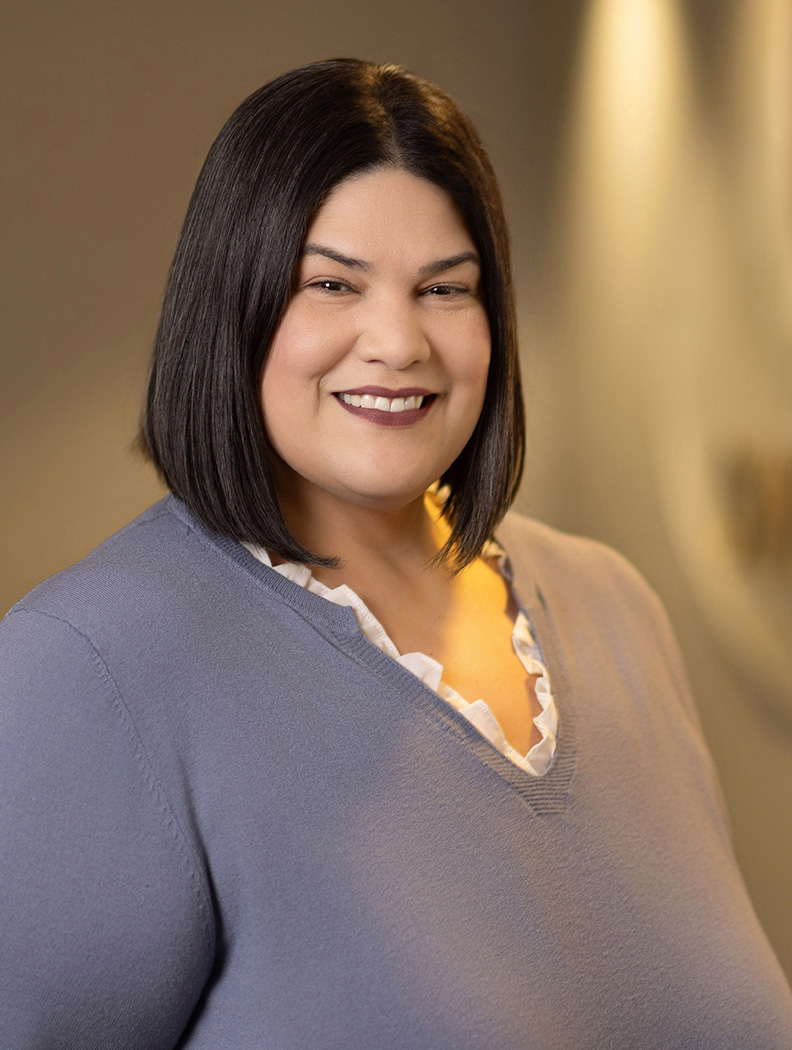Resource Navigation
Learn more about how CancerCare Resource Navigation can help you address barriers to care.
Connect Education Workshops
Listen in by telephone or online as leading experts in oncology provide up-to-date information about cancer-related issues in one-hour workshops. Podcasts are also available.
Podcasts
Insurance
- Understanding the Cost of Care & Your Health Care Coverage, Apr 23, 2025
- Cancer in the Workplace, Health Insurance, Finances and Returning to School, Dec 13, 2024
- Managing the Cost of Living with Cancer, Sep 23, 2020
- Understanding the Costs of Care and Your Health Care Coverage, Mar 18, 2020
Publications
Read or order our free Connect booklets and fact sheets offering easy-to-read information about the latest cancer treatments, managing side effects and coping with cancer.
For Any Cancer Diagnosis
- A Helping Hand: The 2025 Resource Guide for People With Cancer
- Coping With Cancer When You’re Uninsured
- Counseling to Better Cope With a Cancer Diagnosis
- Legal Assistance: Finding Resources and Support
- Making Sense of Prescription Drug Insurance Policies
- Managing the Cost of Cancer
- Patients’ Bill of Rights and HIPAA
- Términos que debe tener en cuenta: Definiciones de seguros (Terms to Know - Insurance Definitions)
- Terms to Know: Insurance Definitions
- Tips for Managing the Cost of Cancer
- Understanding Medicare
- Understanding the Affordable Care Act
- Understanding Your Insurance Coverage
- What Are Copay Accumulator Adjustor Programs?
- What Is a Specialty Pharmacy?
- What Is Pre-Authorization?
- What Is Step Therapy?
Financial Assistance
Limited assistance from CancerCare is available to help with cancer-related costs.
Ask CancerCare
Every month, featured experts answer your questions about coping with cancer including specific answers to questions asked by caregivers.
For Any Cancer Diagnosis
- Q.
My dad has terminal cancer and he is currently at home. He has no insurance, but Medicaid is pending. We're trying to get hospice or some support. What can I do?
A.It must be a very difficult time for your family and you are to be commended in seeking out resources and support services that are available to assist your family.
Hospice is paid for through the Medicare or Medicaid Hospice Benefit and by most private insurers. If a person does not have coverage through Medicare, Medicaid, or a private insurance company, hospice will work with the family to make sure needed services are provided. In order to receive hospice services, your father’s doctor will need to make a referral to a local hospice provider. You may also contact a local hospice to find out what steps you should take.
The National Hospice and Palliative Care Organization (NHPCO) offers information and resources about end-of-life and hospice through its Caring Connections website. We’ve created a fact sheet, Caregiving at the End of Life, that provides guidance as you care for your father.
It’s important that you continue to follow-up with his Medicaid application, as benefits will be retroactive to the date when he applied and can be used to pay any medical bills that may be incurred during the application period. CancerCare’s fact sheet Sources of Financial Assistance, may also be helpful in finding resources.
If you continue to have difficulties finding hospice services for your father, please call us at 1-800-813-4673 (HOPE) to speak with an oncology social worker.
- Q.
How do I figure out which Medicare plan is right for me? I don't know if I should get a Medicare Advantage plan or a Medigap plan, or if I should just keep my original Medicare and do neither.
A.When you become eligible for Medicare you receive Part A, which covers certain hospitalization costs. If you want coverage for outpatient services, you should choose Part B as well. Even with Medicare A and B there are still “gaps” in coverage: for example, there is a 20% co-insurance fee for Part B services, and neither A nor B offer drug coverage. Most people choose to supplement their coverage with a retiree plan if their former employer offers it, or a “Medigap” plan, which plugs most of the holes in coverage (except medications). The rest, roughly 18%, choose a Medicare private health plan, called a Medicare Advantage Plan. These plans must offer at least the same benefits as original Medicare but have different rules, costs and coverage restrictions.
Medicare Advantage plans can be useful for those looking for all-in-one medical and drug coverage. However, Medicare Advantage HMOs restrict which doctors and hospitals you can use. An article in Kiplingers magazine sums up the differences well: “Medicare Advantage plans may charge lower premiums than you’d pay for Medicare plus a Medigap policy and Part D prescription-drug coverage. But you could end up paying higher out-of-pocket costs throughout the year. Some Medicare Advantage plans charge higher co-payments for big-ticket items such as hospitalization, or for critical services such as chemotherapy. Or they might not pay for the first 20 days in a skilled-nursing facility (which traditional Medicare covers). In addition, a plan may provide limited coverage if you travel out of state.”
Please note: A study of cancer patients by an affiliate of the University of Pittsburgh Cancer Institute suggests that members of Medicare Advantage HMO plans are opting out of clinical trials because these policies generally require that the patient pay 20% of the costs associated with a trial. In contrast, Medigap plans generally cover those costs.
You can learn more about Medicare coverage options and find plans in your area by visiting the Medicare website. The Medicare Rights Center is also an excellent resource for Medicare questions.
- Q.
I have insurance, but I still have bills that are stressing me out. I thought I'd be covered, but I don't know how I'm going to pay the part I'm being told I owe.
A.If you are insured and struggling with outstanding medical bills, consider the following options:
- Read your insurance policy and understand the terms of your contract. If you have questions, ask your insurance company, insurance broker, or the human resources staff at your employer to explain it to you. Your insurer may have denied a claim even though you are entitled to coverage. HealthCare.gov has an excellent guide on how to dispute claims with your insurer.
- Double check all bills and EOBs (explanation of benefits). You’d be surprised how often billing mistakes are made. Look for incorrect dates of service (you shouldn’t be billed for the room on the day you were discharged) and duplicate fees for tests and procedures.
- Ask the hospital or doctor to consider the insurance payment as “payment in full.” Many people don’t think to do this, and it is often more successful than expected. Some hospitals have funds to offset medical services that aren’t fully covered by insurance.
- Negotiate the outstanding balance by asking for a discount. According to a Wall Street Journal survey, 70% of adults who talked with a hospital say they were successful in negotiating a lower price for their medical bills; 61% were successful with their doctor. You will likely get a greater discount (sometimes as high as 50%) if you pay the outstanding balance in a lump sum. You can also set up a payment plan.
- Explore the resources for co-payment and other medical cost assistance.
Remember to reach out for help—medical debt understandably causes emotional stress and it’s important to get as much support as you can. Speaking with a counselor can help you manage some of your stress and come up with a plan so that you feel more in control.
- Q.
I think I may have cancer but I don't have any insurance and I'm not sure I can afford it. What can I do?
A.I understand your concern about the cost, but if you think you have cancer, you can’t afford not to visit the doctor. Cancer responds to treatment better when it’s caught early, and if it turns out that you don’t have it, you will have peace of mind.
There are 5 main ways to get health insurance:
Your, or your spouse’s, employer or union. If you or your spouse has a job that offers health insurance, ask if you’re eligible to receive it or buy into it. If you had insurance but lost your job within the last 60 days, ask if you’re eligible for COBRA. COBRA is a law that lets you keep your insurance for 18 months, sometimes longer. You pay the full cost.
Your school. If you are currently a full-time or part-time student, check with your college or university to see if you can get coverage through them.
Purchase it on your own. You can buy insurance either directly through an insurance company, or through your state’s Marketplace/Exchange. If you buy it directly through an insurance company, you will not be eligible for discounts based on your income. If you buy it through your state’s Marketplace/Exchange, your income will be taken into account, and you may receive an immediate subsidy, which will lower the cost of your premiums, and possibly your deductibles and co-pays as well. To find your state’s Marketplace, go to www.healthcare.gov. Please note: whether you buy it directly from an insurance company or through the Marketplace, you can only buy insurance during Open Enrollment. Open Enrollment occurs once a year; in most states, you must enroll between November 1 and December 15. There are a few exceptions to this rule – if you lose your job-based coverage mid year, get married, have a baby, move to another county or state, or become eligible for Medicaid, you are eligible for a “special enrollment period”. For more information on special enrollment periods, visit www.healthcare.gov.
Medicaid. Medicaid is a state-administered health insurance program that provides free or low-cost coverage to millions of Americans. In the 33 states (including Washington DC) that have chosen to “expand” Medicaid, it covers all children and adults below 138% of the Federal Poverty Level, which for 1 person in 2020 is $17,237. In the remaining 18 states, it only covers low-income families with children, pregnant women, the blind, and the disabled.
Medicare. If you are 65 or over, or have been deemed disabled by the Social Security Administration for 2 years, you may be eligible for Medicare. Contact www.medicare.gov for more information.
If you are unable to afford insurance and are ineligible for Medicaid or Medicare, ask about charity care and sliding scale programs (fees based on your income) at hospitals and clinics. Some hospitals are required to see patients who are uninsured. Contact your local department of public health, social services, or business office of your hospital of choice for more information.
Finally, if you are concerned about either breast or cervical cancer, the National Breast and Cervical Cancer Early Detection Program provides low-income, uninsured women access to screening and diagnostic services to detect breast and cervical cancers. Women who are subsequently diagnosed with cancer may be immediately eligible for limited Medicaid.
- Q.
My sister was diagnosed with cancer recently, and she has no health insurance (she does not qualify for Medicaid). What can she do?
A.If your sister was previously employed and receiving health insurance coverage through her employment inquire about COBRA which will help her keep that insurance. Another option of getting coverage is through the Health Insurance Marketplace for the state that she lives in. You can do that through www.healthcare.gov. The Health Insurance Marketplace will ask questions in order to determine what coverage is available for her needs as well as what her current budget allows. These two options are available to help her get coverage, but it will also require a fee for the coverage. If the fees are a too much for her current budget then a suggestion is to look into Insurance Premium Payment programs that might help offset some of the costs.
If paying for insurance coverage at this time is not in the realm of possibilities, then you can reach out to hospitals that might offer charity care. Charity care will help get some kind of treatment but it depends on the hospital what their charity care consists of. Another option is to see if there are hospitals that have their own insurance network. Some hospitals and cancer centers offer their own in-house insurance which is only valid within the facility for services. The last option for receiving services is to inquire about patient assistance programs within the hospital or cancer center. Patient assistance programs can help by providing a grant, payment plans, sliding scale or resources about other grants to help cover the costs.
If you need any additional resources or assistance, CancerCare offers a number of publications with resources for financial assistance. Below are two of them:
If you would like a little more personalized experience CancerCare offers a Resource Navigation Program free of charge that will provide you with a case manager who can assist in locating local financial and emotional support resources.
Lastly, another resource is www.cancerfinances.org that offers a toolkit for navigating finances after a cancer diagnosis.
- Q.
I have been diagnosed with cancer. I have no insurance or can't get Medicaid. I owe a doctor for a previous procedure. I've applied for disability, and I have no income. I can't get the radiation treatment I need - what should I do?
A.It sounds like you might not be able to afford coverage at this time so you should reach out to hospitals that might offer charity care. Charity care will help get some kind of treatment but it depends on the hospital what their charity care consists of. Another option is to see if there are hospitals that have their own insurance network. Some hospitals and cancer centers offer their own in-house insurance which is only valid within the facility for services. The last option for receiving services is to inquire about patient assistance programs within the hospital or cancer center. Patient assistance programs can help by providing a grant, payment plans, sliding scale or resources about other grants to help cover the costs.
You may take a look at our online resource guide to see what financial resources are available to you.
One last suggestion regarding the previous bill is reaching out to your network of family and friends. Sometimes family members and friends can assist with some of the funds or can assist in coming up with a fundraising plan.
If you would like more personalized experience, CancerCare offers a Resource Navigation Program free of charge that will provide you with a case manager than can assist in locating local financial and emotional support resources.
For Cervical Cancer
- Q.
What resources are available for women with cervical cancer who have no medical insurance? I was going to a specialist and my cancer was advancing. I have had no treatment since due to lack of insurance.
A.The many challenges of being diagnosed and not having insurance are stressful and emotionally difficult. Navigating treatment without insurance can feel daunting, but there are resources you can explore that may be able to help. First, I would encourage you to speak to your previous specialist and medical team about the current difficulty you are experiencing. You indicated you were receiving treatment at one point but had to stop; a social worker, nurse navigator, or someone in the finance department of the specialist’s office or treatment center may be able to help guide you. There may be local resources that can help pay for treatment, and sometimes offices will be able to work out a payment plan with you once they are aware of the situation.
I would also recommend exploring if you would be eligible for Medicaid in your state. The eligibility varies from state-to-state, and you can learn more about the program here. Often your local social services office can help with determining eligibility and submitting the application.
You can inquire about any charity care or reduced cost care you may be eligible for at local hospitals or treatment centers; public hospitals are required to provide some level of charity care, but policies can vary and you would need to check with the hospital for their specific eligibility and application process.
CancerCare provides a searchable database of cancer resources and assistance based on zip code. You can utilize the search to investigate any additional resources that may be available near you.
For Breast Cancer
- Q.
I'm looking for help. I do not have insurance and do not think I qualify for any charitable help. I need surgery for breast cancer and chemotherapy. Is there anywhere I can get help?
A.I understand your concern about not having insurance and being diagnosed with breast cancer and needing surgery and chemotherapy. This can be overwhelming and I hope to guide you in the right direction so that you can find assistance.
Listed below are resources for people who have been diagnosed with breast cancer and do not have medical insurance to cover the cost of their treatment:
Susan G. Komen (www.komen.org or 877-465-6636. They can assist you in locating your local affiliate that provides grants to local community-based organizations providing education, screening and treatment programs. Some of these programs may include financial assistance programs to those that are uninsured.
The Centers for Medicare and Medicaid has information on your state’s Medicaid program eligibility requirements. Medicaid is a free, state insurance plan that covers the cost of medical care to those who qualify. Please visit: www.cms.hhs.gov/home/medicaid.asp.
Many state and corporate prescription assistance programs help patients obtain free or low-cost medications. To learn more about the patient assistance programs (PAPs) that are offered by pharmaceutical companies and states, visit the Partnership for Prescription Assistance at www.pparx.org or call 888-4PPA-NOW (888-477-2669).
- A social worker at the hospital where you will be receiving treatment often can provide referrals to local sources of financial aid. In addition, it might be helpful to explain your financial situation to the hospital’s business office and your physicians. Professionals involved in caring for you are well aware of the economic burden that cancer imposes on patients and families. They might be able to develop a plan to reduce costs or extend payments over a longer period of time.
Other organizations that may be of assistance to you during this time include:
CancerCareoffers limited assistance for transportation, home care and child care for women who qualify. Limited funds are also available to assist with certain oral, pain, and anti-nausea medications, lymphedema supplies and durable medical equipment.
Patient Advocate Foundation offers a one time grant of $300 for qualified patients to cover expenses for lymphedema care and supplies, durable medical equipment, transportation costs associated with getting to and from treatment, prostheses and wigs or child care and/or elder care necessitated by treatment. Eligible patients include those who have been diagnosed and are in active treatment for breast cancer who fall within 250% or less of the federal poverty limits. For more information, call 855-824-7941.
For additional support, I encourage you to call CancerCare’s Hopeline at 800-813-4673 to speak to an oncology social worker.
Specialized Programs
CancerCare offers specialized programs to address specific populations and concerns.
Coping Circle Workshops
Virtual educational and supportive workshops led by oncology social workers and qualified co-facilitators. These workshops cover numerous topics and are offered in English and Spanish.
Additional Resources
Organizations
American Cancer Society
BenefitsCheckUp
Cancer and Careers
Cancer Justice
Center for Medicare Advocacy
Chai Lifeline
Families USA
HealthCare.gov
Kaiser Family Foundation
Magnolia Purpose in Planning
Medicare Rights Center
Patient Advocate Foundation (PAF)
The Samfund

 Answered by
Answered by  Answered by
Answered by  Answered by
Answered by  Answered by
Answered by  Answered by
Answered by 